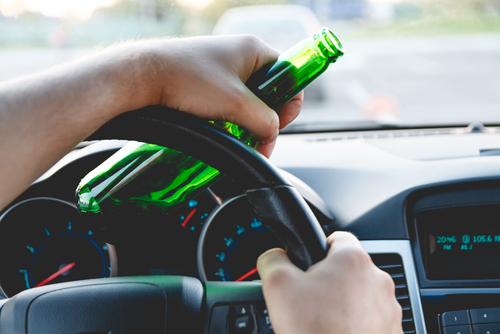Being hit by another driver is already bad enough. But the situation may be even worse when you realize that the at-fault driver is intoxicated. And things can still become more difficult when you learn that the drunk driver doesn’t have auto liability insurance. If you were injured in a car crash that was caused by a drunk driver who didn’t have insurance, you need to know what steps to take following the accident and what your legal rights and options may be.
Contact Law Enforcement
In a drunk driving accident, the intoxicated driver may be incredibly agitated or combative due to their drunken state. The drunk driver may also have been seriously injured in the accident. The best thing you can do is to notify law enforcement of the accident and let them handle the drunk driver, including getting them medical attention if needed and arresting them for DUI afterward.
Document the Accident Scene
If possible for you to do so, you should use your cell phone to take photos and/or videos of the accident scene, including the damage to the vehicles involved, any skid marks on the road, the traffic controls at the scene, and weather or lighting conditions. You should also speak to any eyewitnesses and get their contact information.
Seek Medical Attention
You should also get medical attention for yourself as soon as possible after the accident. Even if you don’t have any visible injuries, you may want to let a doctor perform a complete physical check on you to possibly identify any injuries that are not yet causing you any pain or other symptoms.
If the drunk driver doesn’t have insurance, you may be able to get your initial medical costs covered by the personal injury protection coverage under your own auto policy, and thereafter by your health insurer (although some health insurance policies disclaim coverage for injuries suffered in motor vehicle accidents).
Review Your Auto Insurance Policy
Following the accident, it is important for you to review the terms and coverages under your own auto insurance policy. First, check to see how much personal injury protection coverage you purchased. PIP coverage will help cover medical bills and other out-of-pocket expenses and losses related to your injuries.
You should also check to see what kind of uninsured motorist coverage you may have in your policy. If the at-fault drunk driver didn’t have insurance, you may be able to file a claim with your insurer under the uninsured motorist coverage. With this coverage, your insurer effectively steps in as the insurer of the at-fault driver to compensate you for your losses.
Finally, you should also check your insurance policy to confirm when you are required to notify your insurer of the accident or that the other driver was uninsured. If you wait too long to file a claim, your insurer may have the contractual right to deny you coverage.
Talk to a Motor Vehicle Accident Lawyer
Lastly, you should make time for a consultation with a motor vehicle accident lawyer to go over your legal rights and options and the next steps you need to take to recover compensation for your injuries.
Read more: Common Types of Back Pain Caused by Car Accidents
Contact a Fort Lauderdale Personal Injury Lawyer to Discuss Your Drunk Driving Accident Case in Florida
Did you or a loved one sustain serious injuries due to a drunk driving accident in Florida? Don’t let the medical bills pile up while you wait for the negligent party or their insurance company to do the right thing. Right now, you need an aggressive personal injury attorney on your side, fighting to get you the compensation you need, want, and deserve. The skilled attorneys at Lawlor, White & Murphey represent clients injured because of drunk driving accidents in Coconut Creek, Plantation, Pompano Beach, and Pembroke Pines, and throughout Florida. Call (954) 525-2345 or fill out our online contact form to schedule a free consultation about your case. We have an office conveniently located at 2211 Davie Boulevard, Fort Lauderdale, FL 33312, as well as offices in Pembroke Pines, Weston, Coconut Creek, Plantation, and Pompano Beach.
The articles on this blog are for informative purposes only and are no substitute for legal advice or an attorney-client relationship. If you are seeking legal advice, please contact our law firm directly.

